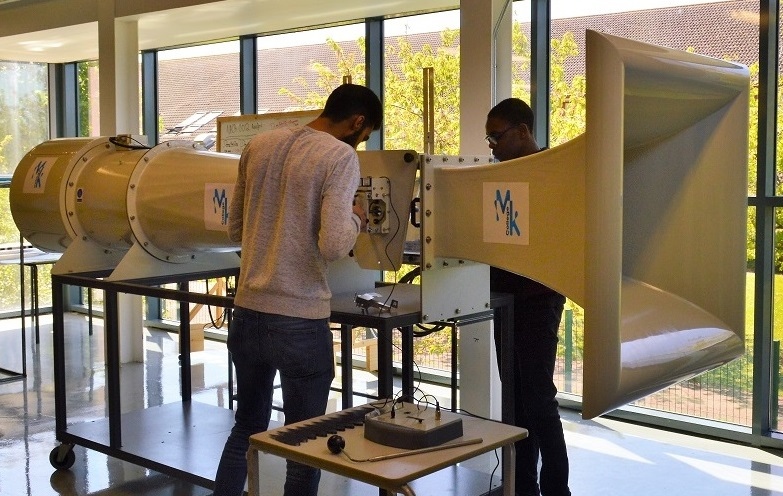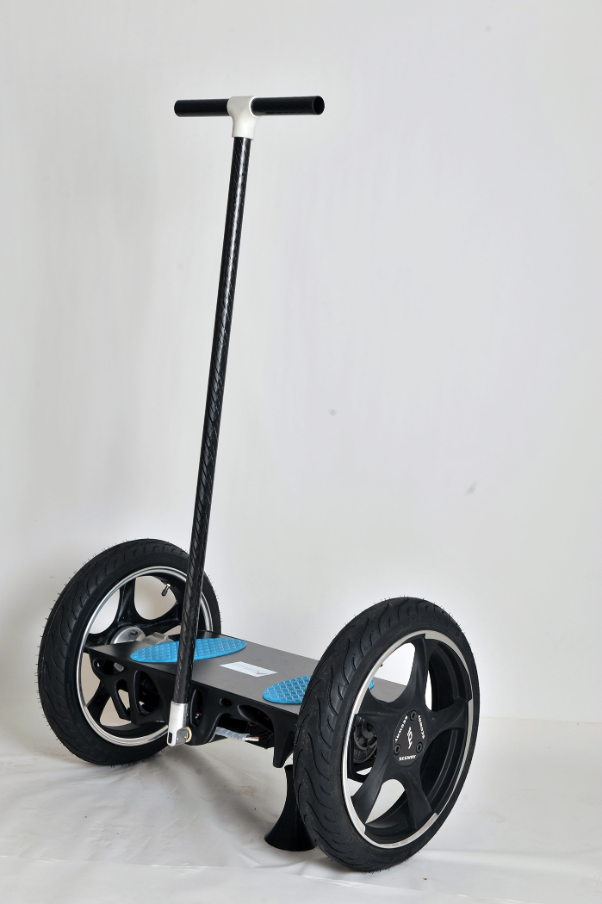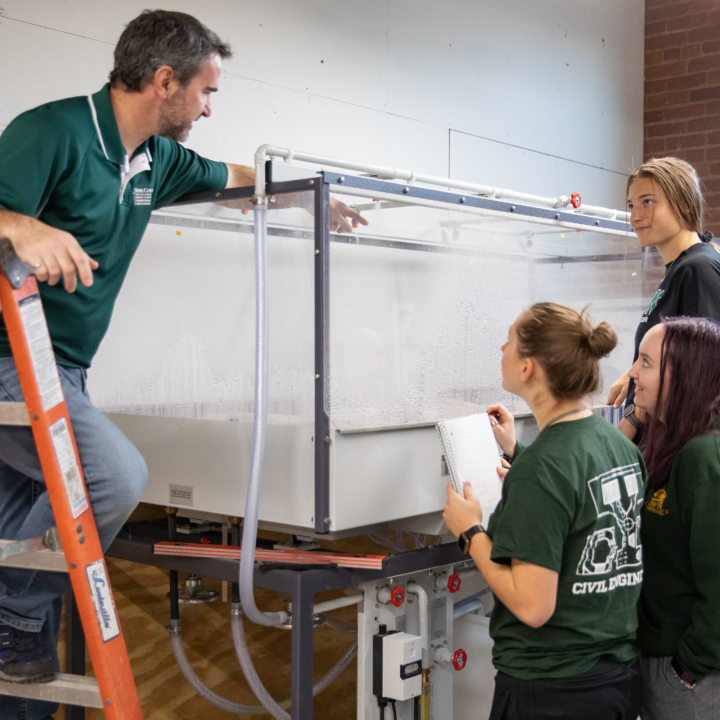Hands-on experiments and challenges are instrumental to teaching students mechanical engineering concepts. They help students connect theories taught in the classroom with practice. In addition, challenging students to problem-solve their design concepts helps them build practical skills to prepare them for careers as mechanical engineers, especially when students use the same equipment used in the industry. To help you bring hands-on experiences to your students, we've compiled some mechanical engineering project ideas from universities around the world.
Mechanical Engineering Project Ideas
Mechanical Engineering Senior Design Project Idea
The Central Connecticut State University mechanical engineering program has two components to its senior project. In the first course, students work in groups in an industrial design setting to research and propose new design concepts. The second part of the senior project is to finish their designs with computer simulation and prototyping.
One student group designed and fabricated the body of an RC race car. They were given the opportunity to present it at a student competition at the national Society of Plastics Engineers, Thermoforming Division Annual Conference and won the People's Choice Award and the Technical Excellence award for their project!
Fluid Mechanics Student Competition
At Nottingham Trent University, first-year students work together in groups, motivated by a competition centered around a theme provided by the professor. Using TecQuipment lab equipment, they are challenged to design their own experiment by coming up with a problem, testing their hypothesis, and reporting on the results through video submissions.
For example, one year students were challenged to design experiments to investigate a fluid mechanics phenomenon. One team ran an investigation to find out how propeller design features impact performance and another group ran an investigation into centrifugal pump efficiency and water density. Both teams used the TecQuipment Centrifugal Pump Module in their experiments.
Wind Tunnel Experiment
To teach aeronautical engineering, students at Milton Keyes College are required to work on projects involving the design, manufacturing, and testing of aerofoils. Students are tasked with designing and building three types of aerofoils, testing with three angles in a wind tunnel (0 degrees, 5 degrees and the critical 15 degree stall angle) and then applying three different equations (lift, drag and wind speed) using the TecQuipment Subsonic Wind Tunnel.
This project can be taken a step further by challenging the students to create their own aerofoils using a 3D scanner and 3D printers.

Mechanical Engineering 3D Printing Projects
Many mechanical engineering programs incorporate 3D printing into projects and research. 3D printing allows students to hold their designs in real-life and test and iterate their ideas in short periods of time.
At Purdue University, mechanical engineering students use Stratasys 3D printers to research various structures to determine the viability of their designs and their structural implications. For example, they use 3D printing to study Topologically Interlocked Material, defined as load-carrying assemblies of units interacting by contact and friction. They also have investigated the relationship between printed part size and part strength and failure modes.
Mechanical engineering students at the University of Applied Sciences Ravensburg-Weingarten created a self-balancing scooter as part of a research project. They used Stratasys 3D printers to create parts for the scooter in a much faster turnaround time than outsourcing. They also had parts that were too complex for subtractive manufacturing. Additive manufacturing with 3D printers gave the students more flexibility and customization in their prototyping.

Mechanical Engineer Guest Speakers
To give students first-hand insights into what it's like to be a mechanical engineer, professors bring mechanical engineers to their classrooms to speak with students about their profession, answer student questions, and share tips for applying for jobs. If you're having difficulty finding mechanical engineers to speak to your class, here are some pre-recorded Q&A interviews with engineers from around the world that you can share with your students.
Problem-solving, collaboration, and experience designing and understanding how mechanical systems work are critical skills for mechanical engineers. These mechanical engineering project ideas are some ways that you can provide your students with opportunities to experiment in the classroom and be better prepared after graduation.
If you're interested in any of the technology highlighted here, or would like help incorporating student projects into your New England mechanical engineering program, please contact us!

